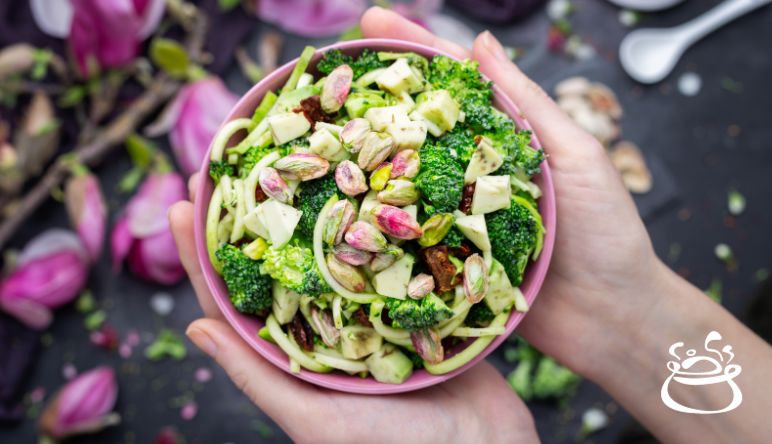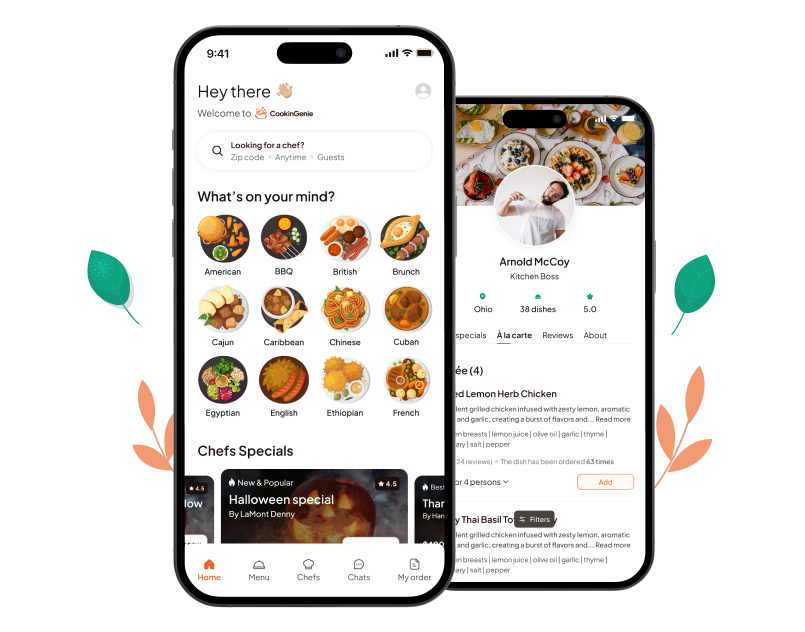Going Vegan? Finding the Best Meat Alternatives
When people hear the word ‘vegan,’ the first thing that comes to mind is usually a list of foods not to consume, such as meat and dairy. But some don’t realize that not only veganism offers a variety of delicious and nutritious plant-based options like fresh fruits, vegetables, grains, and legumes – but also increasingly realistic alternatives to our favorite animal products. This blog post will take an in-depth look at vegan meat alternatives. You’ll learn how such products have gained popularity among vegans and non-vegans alike over the years and have become increasingly accessible. Whether you’re vegan or vegetarian curious or looking for a healthier choice than traditional meats – this guide will help you become more familiar with vegan meat alternatives so that you can make informed decisions about your dietary preferences.
Why Do We Need Sustainable Meat Alternatives?
We all are responsible for protecting our planet, and the world’s growing demand for meat is one of the main contributors to climate change. With this in mind, we must explore sustainable protein sources to reduce our dependence on traditional animal products. We can make sustainable meat alternatives from plant-based ingredients (such as beans and lentils) or sources such as insects and algae. These foods not only provide us with healthier, more environmentally friendly options, but they are also generally easier on the wallet. On top of this, when eaten in moderation, these alternatives can help keep us in good health by providing ample nutrients without overloading our bodies with cholesterol or saturated fats found in traditional meats. For these reasons and more, sustainable meat alternatives are an essential part of keeping a diet that is both healthy for ourselves and beneficial for the environment. With advances in technology making these products more accessible, there has never been a better time to switch for both your health and the future of our planet!
Common Plant-Based Meat Alternatives
Plant-based meat alternatives have surged in popularity over the last few years, providing people with tasty meals that are kind to animals and the planet. Here are some common plant-based meat alternatives for your next (meat-free) meal:
- Seitan: This is a vegan staple made of gluten, similar to real meat’s texture and taste. It can be marinated, baked, or fried and used in stir-fries, sandwiches, and wraps.
- Tempeh: A traditional Indonesian dish made from fermented soybeans. Its nutty flavor makes it perfect for crumbling up in tacos or added to salads.
- Tofu: The classic vegan option created by coagulating soy milk into solid blocks of protein-rich goodness goes well with countless recipes such as scrambled eggs or teriyaki tofu steak.
- Textured Vegetable Protein (TVP): High in protein, TVP is made from dry textured soy flour and comes in different shapes like nuggets, chunks, or mince for different types of cuisine.
- Jackfruit: Jackfruit is becoming increasingly popular as this large tropical fruit has a fleshy texture but mild flavor that lends itself easily to savory dishes when cooked, making it perfect for BBQs and curries or stews.
- Quorn: You can create Quorn using mycoprotein derived from a natural fungus. It has become popular as readymade options such as nuggets or sausages that are great for quick meals with minimal fuss.
- Chickpeas: These humble legumes are a perfect source of fiber and nutrients, especially protein. They can make delicious burgers and falafels with just some mashing and spicing!
- Lentils: Another pantry staple with plenty of possibilities – lentils. You can transform lentils into patés, veggie burgers, or even homemade meatballs.
- Bean Burgers: Use any beans such as black beans, kidney beans, or pinto beans to make impressive patties by mixing them up with some herbs and spices and then grilling until golden brown.
- Veggie Dogs: Perfect for recreating a traditional hot dog experience without the guilt! Mix in mashed potato, seasonings, and carrots for authentic coloring, then shape them before cooking.
What’s Next for Sustainable Meat Alternatives?
Sustainable Meat Alternatives have been rising in popularity, and they are quickly becoming the go-to choice for people looking to reduce their environmental impact without compromising their dietary preferences. While traditional meats will continue to play a significant role in food production and consumption, sustainable meat alternatives are helping to move us toward a more sustainable future. In particular, plant-based meats have opened up new possibilities, introducing delicious and nutritious products that taste just like their animal-based counterparts. Further research and development can bring about even higher quality breakthroughs, such as lab-grown meat products that require fewer resources and produce fewer carbon emissions than conventional methods of raising livestock. Additionally, exploring better ways of having seafood from either farmed or cultured sources can play an essential part in protecting our oceans from further overfishing. With continued innovation and commitment to sustainability, it won’t be long before sustainable meat alternatives become the norm. We can close the gap between traditional and alternative meat with new technologies and techniques that take the best aspects before we know it.
Difference between meat alternatives and meat substitutes
When considering plant-based alternatives to animal-derived protein, it can be better to understand the distinction between meat alternatives and meat substitutes. Both may have similar characteristics in terms of texture and flavor, but there are also some critical differences.
Meat substitutes mimic the taste and texture of meat and usually contain some animal-derived ingredients such as eggs, dairy, or gelatin. Meat alternatives, on the other hand, consist entirely of plant-based ingredients and often provide a toothsome experience. Furthermore, many meat alternatives are higher in healthy plant-based nutrients than their counterparts.
Some products straddle both categories by using a mix of plant and animal variants or combining a vegan ingredient with identical or similar non-vegan ingredients. Therefore, you should pay close attention to product labels before making purchase decisions. Whether shopping for a weekly roast chicken substitute or simply trying to incorporate more vegan options into daily meals, understanding the difference between these two types of alternative meat products is vital.
What Meat Alternatives have the highest protein content?
Eating a balanced diet is an integral part of supporting good health. Protein is one of the essential macronutrients needed for energy, cell repair, and muscle growth; however, getting enough protein can sometimes be challenging without relying heavily on meat. Fortunately, many plant-based alternatives are high in protein and can provide all the essential nutrients your body needs. Topping the list of meatless protein sources include:
- Lentils have 18 grams of protein per 1 cup cooked serving.
- Tofu has 14-19 grams of protein, depending on the variety.
- Tempeh has 15 – 19 grams per 1/2 cup cooked.
- Edamame beans have 8.5 grams per 1/2 cup cooked;
- Quinoa has 8 grams per 1 cup cooked.
- Buckwheat delivers 6 grams per 1/2 cup of raw seeds.
- Seitan may offer up to 25 grams per 100 grams.
- Natural peanut butter offers 7-8 grams in 2 tablespoons.
- Roasted soy nuts give you 10 grams in 3 tablespoons.
- Hemp seeds provide 9 grams in 3 tablespoons.
- All these non-meat proteins are low-fat and packed with additional vitamins and minerals to keep your body running at full strength without sacrificing flavor or nutrition. So if you’re looking for a vegan food source to increase your daily protein intake while cutting out meat entirely, turn to these delicious alternatives – each offering something unique from flavor to nutrient content.
Disadvantages of Vegan Meat alternatives
As vegan diets become increasingly popular, institutions like schools and restaurants are beginning to offer alternative, plant-based versions of common meats. While these vegan versions may provide an enjoyable choice for those who cannot or choose not to eat animal products, there are also a few potential downsides. One challenge is the ingredient list: Vegan meat substitutes often have a laundry list of ingredients that, while safe for consumption, can be difficult to understand or pronounce. Additionally, vegan meats can be notoriously low in essential vitamins and minerals—such as calcium and iron—leaving those who make them their primary source of protein at risk for deficiencies. Finally, these alternatives tend to be far pricier than traditional meat groceries. As specialized ingredients are needed to ensure a convincing flavor profile and mouth feel, stocking up on plant-based proteins on a budget can make stocking up challenging. Ultimately, while vegan meat replacements are pretty popular due to their sustainable aspects and convenience of preparation, they should still be treated like any other special dietary item—a treat or occasional indulgence rather than an everyday staple.
To conclude, vegan meat alternatives provide an enticing array of options to those wanting to reduce or eliminate animal products from their diet. Whether you’re looking for burger substitutes, deli slices, nuggets, or meatballs – or just about anything else – there is almost certainly something out there that fits the bill. The products are becoming increasingly popular as more and more people become aware of the health benefits, taste profiles, and sustainability factors associated with plant-based meats. Vegan meat alternatives have allowed many to enjoy the food they love without compromising their values. From the perspective of both the individual and greater society, opting for these products has myriad positive implications. All in all, this is an exciting time to be exploring vegan meat alternatives!



 Settings
Settings
 Gift Card
Gift Card Blog
Blog Locate Us
Locate Us










 Home
Home
 Chefs
Chefs
 Chats
Chats
 My Order
My Order



